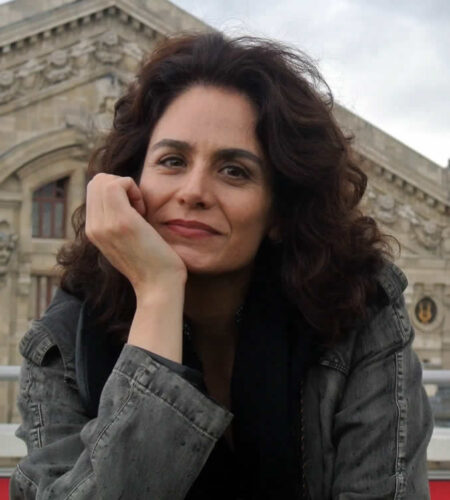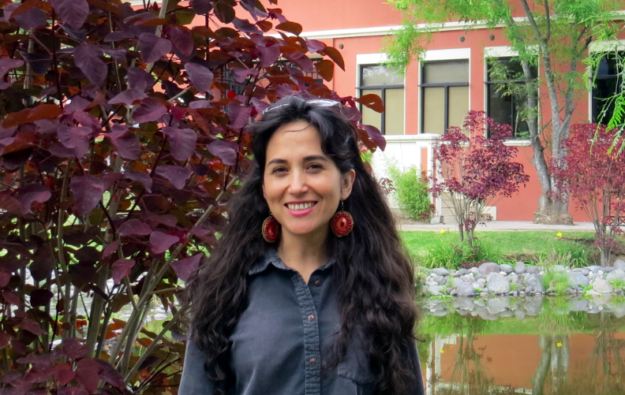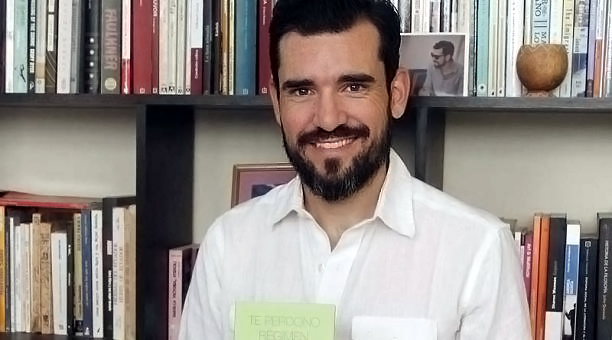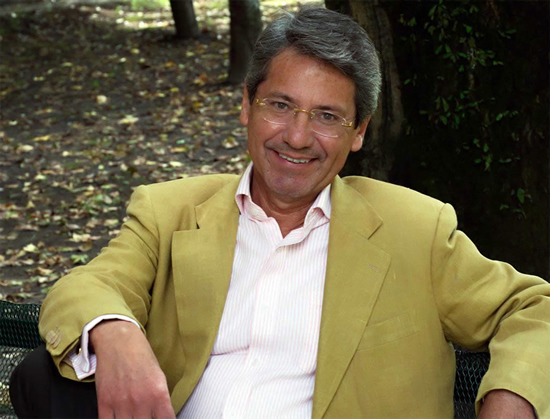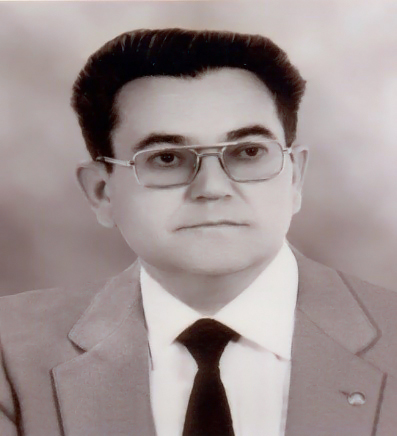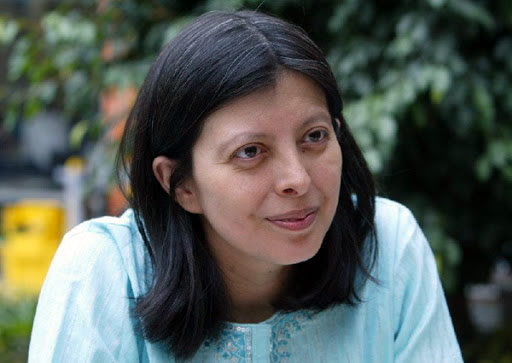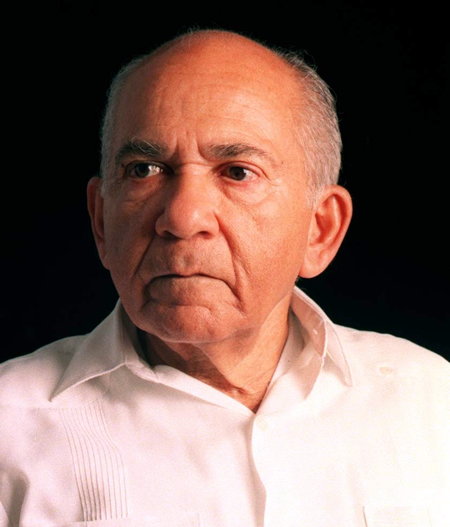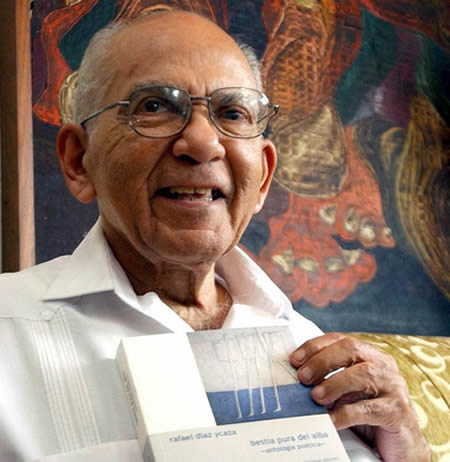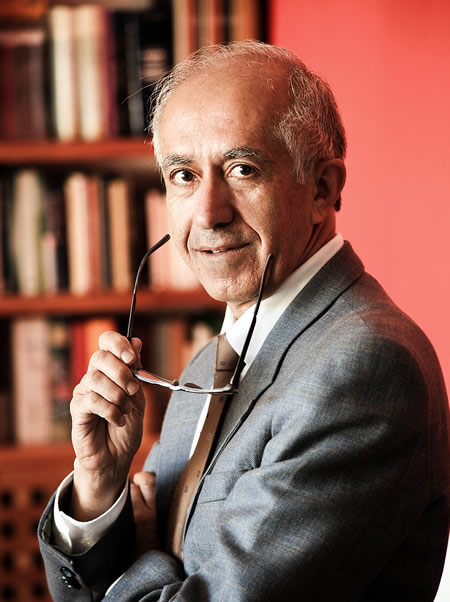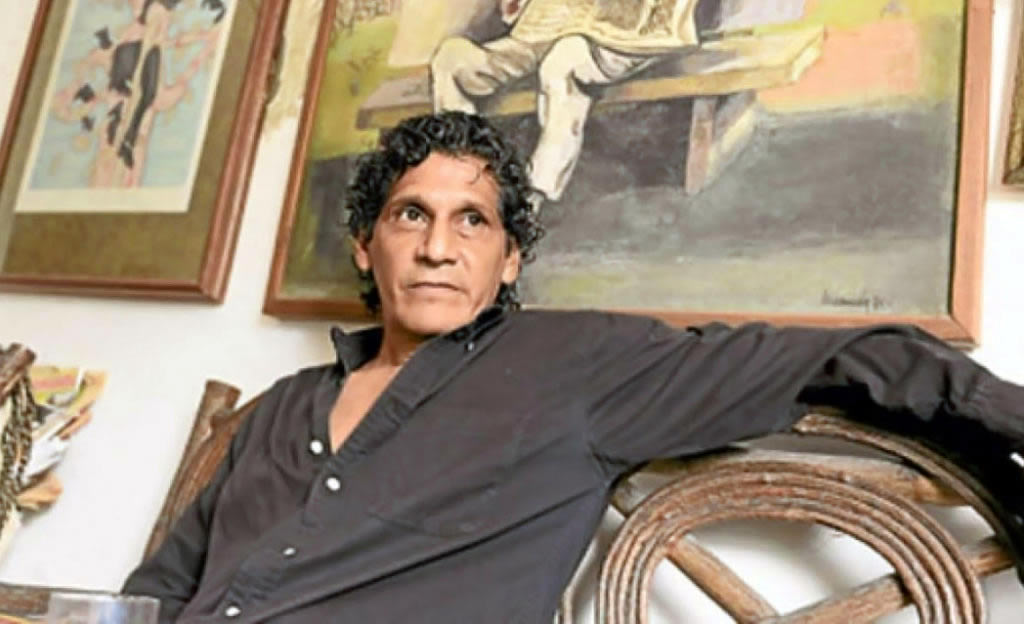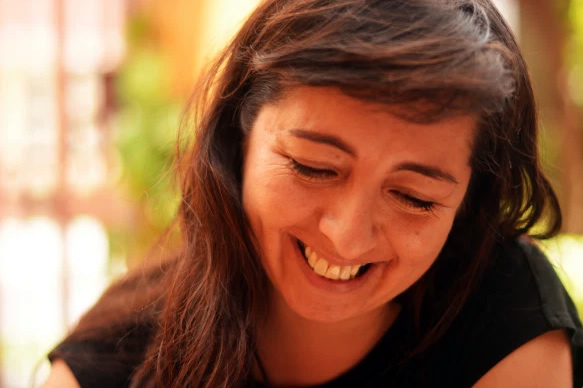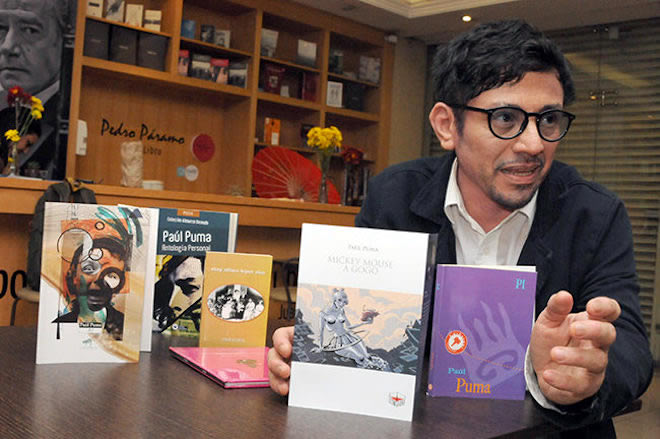Gabriela Alemán is an Ecuadorian writer, translator, literary critic, academic and professor. She was born in Rio de Janeiro to Ecuadorian parents on September 30, 1968. After living in several countries in her youth, she settled in Quito, Ecuador. Alemán studied translation at University of Cambridge (UK), received a master’s in Latin American Literature at Simon Bolivar Andean University (Ecuador) and obtained a doctorate at Tulane University (New Orleans). In 2006, she received the Guggenheim scholarship in Film, Video and Radio Studies. Alemán won First Place at the CIESPAL de Crónica Awards for her article “Los limones del huerto de Elisabeth” (2014), and the Joaquín Gallegos Lara Prize for her short story collection La Muerte silba un blues (2014). Her best known novel is Poso Wells (2007; translated into English by Dick Cluster, 2018). The Paris Review, The New Yorker, and Los Angeles Review of Books have published commentaries and interviews about the novel. Alemán teaches at the University of San Francisco, Quito and at Tulane University.
Continue reading “Gabriela Alemán”Author: richard
Gabriela Ponce
Gabriela Ponce Padilla (Quito, Ecuador, November 13, 1977) is an Ecuadorian writer, playwright, theatre director, and professor at the Universidad San Francisco de Quito. She debuted with Antropofaguitas (2015), a short story collection that established her literary presence. Her play Lugar won the Joaquín Gallegos Lara National Literature Prize in 2018, and her novel Sanguínea (2019), which explores pain, eroticism, and love through metaphors of blood and menstruation, received the same prize for Best Novel in 2021. Sanguínea was translated into English as Blood Red (2022).
Continue reading “Gabriela Ponce”María Fernanda Ampuero
María Fernanda Ampuero is an Ecuadorian writer, journalist and feminist. She was born in Guayaquil, Ecuador on April 14, 1976. In 2018, Ampuero’s first book of short stories Pelea de gallos (2018; translated into English as Cockfight in 2020) received the Joaquín Gallegos Lara Prize.
Continue reading “María Fernanda Ampuero”Daniela Alcívar Bellolio
Daniela Alcívar Bellolio is an Ecuadorian writer, literary critic and feminist. She was born in Guayaquil, Ecuador on March 3, 1982. Alcívar’s first two books were published in 2016, her short story collection Para esta mañana diáfana, and her essay collection Pararrayos, which she wrote while living in Buenos Aires, Argentina. In 2018, her novel Siberia was awarded the Joaquín Gallegos Lara Prize for best novel of the year and also received honorable mention at the La Linares Prize.
Continue reading “Daniela Alcívar Bellolio”Salvador Izquierdo
Salvador Izquierdo, pseudonym of Jorge Izquierdo Salvador (London, UK, 1980) is an Ecuadorian writer. He has dual British and Ecuadorian citizenship. He earned a PhD in Latin American studies from the University of British Columbia, Vancouver. His first novella “El deslenguado de Portete” (2006) was the Second Prize winner of the Medardo Ángel Silva Award. Along with Javier Izquierdo, he is the co-screenwriter of the films “Un Secreto en la Caja” (2016) and “Panamá” (2019). In 2019, Izquierdo’s novel “El nuevo Zaldumbide” [The New Zaldumbide] was awarded the Joaquín Gallegos Lara National Fiction Prize for best novel of the year.
Continue reading “Salvador Izquierdo”Raúl Vallejo
Raúl Vallejo, born César Raúl Enrique Vallejo Corral (Manta, June 28, 1959) is an Ecuadorian novelist, short story writer, poet, politician and academic. He has served as the Minister of Education in the administrations of presidents Rodrigo Borja Cevallos, Alfredo Palacio and Rafael Correa, who also named him Minister of Culture and Patrimony. In the realm of literature, he is one of today’s most prolific writers, and has won many national and international awards, such as the Royal Spanish Academy Award (Spain), José Lezama Lima Poetry Prize (Cuba). In 1999 his books Huellas de amor eterno (short stories) won the Aurelio Espinosa Pólit Prize and Acoso Textual (a novel) won his second Joaquín Gallegos Lara Prize.
Continue reading “Raúl Vallejo”Gabriela Fernández Argüello
Gabriela Fernández Argüello is an Ecuadorian writer. She was born in Quito in 1971. Her collection of 11 short stories La noche de Eva was awarded the Aurelio Espinosa Pólit Prize in 2004.
Continue reading “Gabriela Fernández Argüello”Juan Manuel Rodríguez López
Juan Manuel Rodríguez López is a novelist, short story writer, literary critic, columnist and professor. Born in Bilbao, Spain in 1945, Rodríguez is a naturalized Ecuadorian citizen and has lived in Quito most of his adult life. Rodríguez’ award-winning fiction includes the novels El poder de los vencidos (2003), El pulso de la nada (1996), and El Espantapájaros (1990 & 1995). In 1990, his short story collection Fricciones won the prestigious Aurelio Espinosa Pólit Prize.
Continue reading “Juan Manuel Rodríguez López”María Helena Barrera-Agarwal
María Helena Barrera-Agarwal (Pelileo, 1971) is an Ecuadorian writer, lawyer and researcher. She’s the author of eight books on literature and history. She is an expert on the 19th century Ecuadorian poetess Dolores Veintimilla de Galindo. Barrera is a member of the House of Ecuadorian Culture (Tungurahua chapter), the National Academy of History of Ecuador, the PEN American Center, the National Book Critics Circle of the United States, the India International Centre (India), and the Association of Hispanic Feminist Literature and Culture. She is a recurring contributor to the magazine Artes of the newspaper La Hora. Her book “Merton y Ecuador: La búsqueda del país secreto” was awarded the Aurelio Espinosa Pólit Prize in 2010. Barrera currently lives in New York, U.S.
Continue reading “María Helena Barrera-Agarwal”Ecuadorian poet and novelist Rafael Díaz Ycaza reading from his poetry and prose
Ecuadorian poet and novelist Rafael Díaz Ycaza reading from his poetry and prose. Archive of Hispanic Literature on Tape (Library of Congress, Control Number 93842308), Recorded Mar. 27, 1977, in the Library of Congress Recording Laboratory, Studio B, Washington, D.C. Recorded for the Archive of Hispanic Literature on Tape. Production level cataloging. Also available in digital form on the Library of Congress Web site.
Go to RecordingRafael Díaz Ycaza
Rafael Díaz Ycaza (Guayaquil, October 28, 1925 – August 28, 2013) was a poet, novelist, short story writer and columnist. His notable works include poetry collections such as “Statues at Sea” (1946), “Botella al Mar” (1964), and “Zona Prohibida” (1972), each resonating with his lyrical style and profound imagery. Among his novels are “Los Rostros del Miedo” (1962) and “Los Prisioneros de la Noche” (1967). Beyond his literary achievements, Díaz Ycaza was honored with various awards and recognitions, including the Aurelio Espinosa Pólit Prize (1985)” and the “José de la Cuadra National Short Story Prize (1967). In 2011, Ecuador’s President Rafael Correa awarded Díaz with the the nation’s highest literary distinction, the Eugenio Espejo National Prize, for his lifetime of literary work.
Continue reading “Rafael Díaz Ycaza”“His book [Zona prohibida] was like a bible for the youth of my generation, especially for its social poetry.”
Sonia Manzano (Poet) – quoted in “Rafael Díaz Ycaza, el hombre que dedica su vida a las letras,” El UNIVERSO, Sept 2, 2011.
Iván Carvajal
Iván Carvajal Aguirre is a poet, writer and professor. He was born in 1948 in San Gabriel, Ecuador. In 1984 his work entitled Parajes earned the Aurelio Espinosa Pólit Prize. In 2013 he won the Premio a las Libertades Juan Montalvo. He was part of the Tzantzismo literary movement of the 1960s Ecuador. He lives in Quito and is a Professor at the Pontifical Catholic University of Ecuador.
Continue reading “Iván Carvajal”Jorge Martillo
Jorge Martillo Monserrate is an award-winning poet and has been a columnist for various newspapers. He was born on May 2, 1957 in Guayaquil, Ecuador. He has published the poetry books: Aviso a los navegantes (1987); Fragmentarium (1991); Confesiorarium (1996) and Vida póstuma (1997). He was awarded the Aurelio Espinosa Pólit Prize (1991).
Continue reading “Jorge Martillo”Cristina Burneo
María Cristina Burneo Salazar is an Ecuadorian writer, translator, journalist, professor and feminist. She was born in Quito in 1977. She earned a degree in literature from the Pontifical Catholic University of Ecuador, a master’s degree in literature from the Simon Bolivar Andean University, and a PhD in Latin American literature from the University of Maryland, College Park. Since 2014 she has worked as a postgraduate professor at the Simon Bolivar Andean University, specializing in Human Rights, Cultural Studies and Literature. Her book El sueño de Pierre Menard (2001) which questions the essential characteristics of translation and the criteria used to judge a translation, earned the Aurelio Espinosa Pólit Prize.
Continue reading “Cristina Burneo”Paúl Puma
Paúl Puma (Quito, 1972) is an Ecuadorian poet, playwright, and literary critic. He has a master’s in Latin American literature from the Simón Bolívar Andean University, Ecuador, and a PhD from the University of Alicante, Spain. Among his best known works are the poetry book Felipe Guamán Poma de Ayala (winner of the Aurelio Espinosa Pólit Prize, 2002), and the science fiction theatre piece Mickey Mouse a Gogo (winner of the Joaquín Gallegos Lara Prize, 2017). In 2017 Puma published El tesoro de los llanganatis (The Treasure of the Llanganates) with an English translation by Jonathan Simkins.
Continue reading “Paúl Puma”
